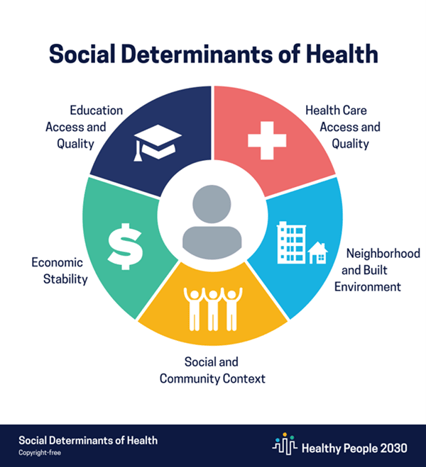Bridging Healthcare Gaps for Vulnerable Populations with Nostr for Health
by Bethany LoMonaco | Oct 17, 2023 | Blog, healthcare for homelessness
Improving access and coordination of care for vulnerable populations is essential for promoting health equity, improving health outcomes, reducing healthcare costs, and ensuring that all individuals receive the care and support they need to lead healthy lives. Among these populations, individuals experiencing homelessness face unique hurdles when it comes to their health and well-being.
Imagine being unsheltered, with no permanent place to call home. In such a situation, the concept of healthcare pales in comparison to finding a place to sleep or perhaps a nourishing meal. Furthermore, people experiencing homelessness often grapple with a complex web of health conditions, including mental illness, addiction, chronic diseases, and injuries. These conditions can severely impact one’s ability to find stable housing and employment, perpetuating a cycle of homelessness and poor health.
 The statistics are startling: 70% of disease causes are not clinical, but socioenvironmental factors, and the average life expectancy for adults in the United States is 79 years, but for those experiencing homelessness, it plummets to a mere 41 years.
The statistics are startling: 70% of disease causes are not clinical, but socioenvironmental factors, and the average life expectancy for adults in the United States is 79 years, but for those experiencing homelessness, it plummets to a mere 41 years.
Furthermore, many individual patient records are stored in electronic medical records (EMR) systems that are severely outdated and cannot communicate with other clinical systems. (And in some cases, patient records only exist on paper!) A more comprehensive approach to secure data management that is interoperable with other clinical systems allows for more comprehensive, proactive, and equitable approaches to healthcare.
Enter NOSH (Nostr for Health) PathCheck’s new open source software conceived to address these pressing healthcare disparities. The mission of NOSH in this particular use case is clear: to improve coordination of care, enhance health outcomes, ensure patient data privacy and empower individuals to take control of their healthcare journey. It accomplishes this by connecting healthcare providers and social service organizations with those who need their help the most.
One of the critical issues faced by individuals experiencing homelessness is the (you guessed it) fragmented and chaotic healthcare ecosystem. Discharged patients frequently find themselves without crucial information about their hospitalization, medical condition, follow-up appointments, or medications. This lack of coordination can lead to unnecessary emergency room visits and hospital readmissions.
The NOSH framework can prop up apps that are designed as resource hubs and communication platforms that bridge this divide. By enabling seamless communication between hospitals and community resources, these community information exchange applications (CIEs) ensure that patients receive the care they need when and where they need it. It simplifies the process, allowing healthcare providers to track patients' progress and provide necessary interventions and support to address social determinants of health efficiently.
Specifically, the NOSH open protocol will cater to public health needs by enabling cross-platform, personalized alerting and data gathering, with the added capability of HL7 FHIR CQL filters. Standing for Fast Healthcare Interoperability Resources, FHIR, was built by the organization Health Level 7 (HL7®), allowing the swift and secure exchange of healthcare information. Coupled with this model, NOSH will create a new patient data model for those experiencing homelessness and also begins the scaffolding for creating Vulnerable Person Health Records (VPHRs) that are essential to better outcomes, follow-up, interventions, and care.
As you know, PathCheck was born from the notion that open source technologies are an efficient, safe, and effective way to fill public health response gaps. This is only the latest in our quest to build applications that modernize public health infrastructure and better prepare us for the public health challenges of this century.